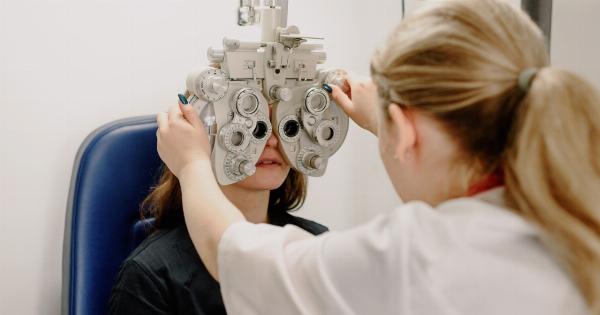Summer is a great time to enjoy the outdoors, but it’s also important to remember to protect yourself from the sun’s harmful rays. One of the most vulnerable parts of your body during the summer months is your eyes.
Prolonged exposure to the sun can damage your eyes, making it important to take steps to protect them. Here are some guidelines to follow to ensure your eyes stay healthy and safe this summer.
1. Wear Sunglasses
The easiest way to protect your eyes from the sun is to wear sunglasses. Not all sunglasses provide the same level of protection, however. Look for sunglasses that offer at least 99 percent UV protection.
Additionally, choose sunglasses with large frames or wraparound styles to protect your eyes from all angles.
2. Use a Hat
In addition to sunglasses, wearing a hat can help protect your eyes from the sun. A wide-brimmed hat provides shade for the eyes and face, helping to reduce the amount of direct sunlight that reaches your eyes.
3. Avoid Tanning Beds
Tanning beds are just as harmful to your eyes as prolonged exposure to the sun. The UV rays emitted by tanning beds can cause significant damage to your eyes, increasing your risk of developing cataracts and other eye conditions.
If you want to have a tan this summer, consider using a sunless tanning lotion instead.
4. Stay Hydrated
Drinking plenty of water is important for your body’s overall health, including your eyes. Dehydration can cause dry eyes, making it uncomfortable and difficult to see.
Be sure to drink plenty of water, especially during the summer months when you are more likely to become dehydrated.
5. Limit Screen Time
Digital devices emit blue light that can strain your eyes. During the summer months, it’s important to limit your screen time to reduce your eyestrain.
Take regular breaks from your devices and look away from the screen to reduce your risk of developing digital eye strain.
6. Be Careful with Contact Lenses
Swimming while wearing contact lenses can increase the risk of developing an eye infection. Additionally, chlorine and other pool chemicals can cause irritation and dry out your lenses.
It’s best to remove your contact lenses before swimming or wear waterproof goggles to protect your eyes while in the water.
7. Wear Goggles
If you plan on participating in water sports, it’s important to wear goggles to protect your eyes from water-borne infections and irritants.
Additionally, if you are working with power tools or performing other activities that could cause eye injury, be sure to wear safety goggles.
8. Visit an Eye Doctor
Regular eye exams are essential for maintaining good eye health, and during the summer months, it’s important to take extra precautions to protect your eyes.
An eye doctor can check for any signs of eye damage and recommend steps to take to protect your eyes from the sun.
9. Use Eye Drops
When spending time outdoors, it’s important to keep your eyes moist by using eye drops. The sun and wind can cause your eyes to become dry and irritated, but using eye drops can help provide relief and keep your eyes moisturized.
10. Know the Symptoms of Eye Damage
If you experience any symptoms of eye damage, such as blurred vision, redness, or discomfort, it’s important to see an eye doctor immediately.
Ignoring these symptoms could cause permanent eye damage, making it important to seek treatment as soon as possible if you experience any problems with your eyes during the summer months.
Conclusion
By following these guidelines, you can protect your eyes and enjoy all that summer has to offer. Remember to wear sunglasses and a hat, limit your screen time, and stay hydrated.
Additionally, be sure to visit an eye doctor regularly to maintain good eye health and seek treatment if you experience any symptoms of eye damage.































